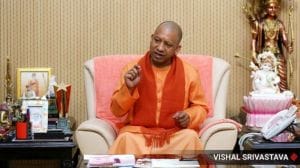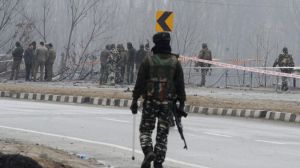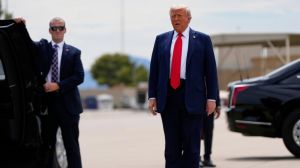A beholden elite run amok
There is such palpable joy at the current upswing in Indo-US relations in New Delhi that I worry for their future. There have been so man...

There is such palpable joy at the current upswing in Indo-US relations in New Delhi that I worry for their future. There have been so many peaks and valleys in the sequence that the only possibly reassuring element in this particular occurrence is that it is happening in the post-Kargil phase.
Policy, I like to imagine, takes shape over time as a result of calm contemplation of position papers prepared by specialists, think-tanks? But which think-tanks? The two in Delhi?
Are retired journalists and civil servants, all very sensible people, a substitute for a vibrant institute to which we can turn for knowledge? Can you name one American specialist in the past 50 years to whom we can turn for wisdom based on scholarship renowned worldwide?
There is just one official — brilliant, obviously — in the Ministry of External Affairs who is the solitary resource person everyone must turn to for each inflexion and nuance that must inform our post-Pokharan strategic thinking. When this official accompanied theforeign minister on one foreign mission, a high powered delegation to Japan had to draft the services of another dealing with the US since he too, by the sheer drill of being on that desk, is familiar with the strategic vocabulary.
There is, in other words, a desperate shortage of specialists, of think-tanks. The result is that one gets a clearer idea of the Asian power balance at Brookings, Carnegie or the International Institute of Strategic studies in London — among a host of others across the US and Europe.
While knowledge is in short supply, lobbies abound, generating the sort of excitement now projecting Indo-US relations spiraling to the moon.
These are not paid lobbies in any unclean sense but collective, or solo, enthusiasts, their links to the US (and the West) no stronger than a teaching assignment, a fellowship, access to the unending seminar circuit, children’s education, the odd green card. All these considerations do not necessarily overwhelm the national purpose, but they do place suchextraordinary focus on the New Delhi-Washington axis that all the other lines are momentarily obscured.
The US lobby here is reflective of the elite which since the ’70s has transferred its cultural allegiance from Britain to the US for very practical reasons.
The post-independence elite distilled and double distilled itself at Oxford and Cambridge. The best and the brightest appeared for the ICS exam in London. Their sons appeared for the IAS and IFS. Their peers from Allahabad, Delhi, Madras, or Bombay were more or less in the same mould.
The British had a huge advantage of access. I remember the British First Secretary (Political) walking through each room in South Block, beginning from the defence ministry and ending at the PMO — the longest period spent in between at the MEA — with as much ease as some of us on the beat. This was in the ’70s.
Stringent immigration laws and the astronomical cost of education in Britain put an end to that intellectual supply route. The American economic boom cameforward with an organised system of scholarships. The double distilled Anglais elite was gradually replaced by a more egalitarian scholarship elite, some with ready blue prints for the new economic order via the World Bank. Their ranks were swollen by the expanding seminar net.
Some of the latter are an embarrassment even to their American interlocutors. The other day on TV one such specialist was so eager to avoid mentioning America as the source for some of the missiles used by the Mujahideen as if his statement would be cited as evidence and he would never be invited to a seminar in Ohio, or to breakfast by Dick Celeste!
In officialdom, the problem is of another order. If you are in search of life after retirement in the UN, the World Bank, the Commonwealth Secretariat, or slots in western campuses, you are unlikely to suggest audacious policy positions with Iraq, Iran or any region not in western favour. But these things change. Witness the appointment of a British ambassador in Teheran andTripoli.
Mercifully, Foreign Minister Jaswant Singh and National Security Advisor Brajesh Mishra have engaged so wide a range of foreign leaders in recent days as to almost symbolise our diversity of interests in foreign affairs.The periodic excitement generated by the US "lobby" does three things:It generates antibodies causing those who have missed out on the seminar circuit to clamber onto the Swadeshi bandwagon.
It obscures the realities on the ground on Indo-US relations. For example, one motivating factor in the post-Kargil American attitude is that the West was keen that fundamentalism must not be seen to have succeeded. But where will the American pendulum stabilise? The Taliban, once hospitable to Osama bin Laden, have launched a fresh offensive in Afghanistan. What linkages between the Saudis, Pakistanis and Taliban have been endorsed by the US?And finally, the euphoria generated deludes folks into believing that we have President Clinton’s attention only a shade less than Western Europe, thePacific basin, the Middle East and the Balkans. Yes, we may acquire some sort of an enduring importance in the US framework after the Clinton visit which itself has a greater chance of materialising if the US enthusiasts do not fall all over us with excitement, generating antibodies.
Photos





- 01
- 02
- 03
- 04
- 05


























